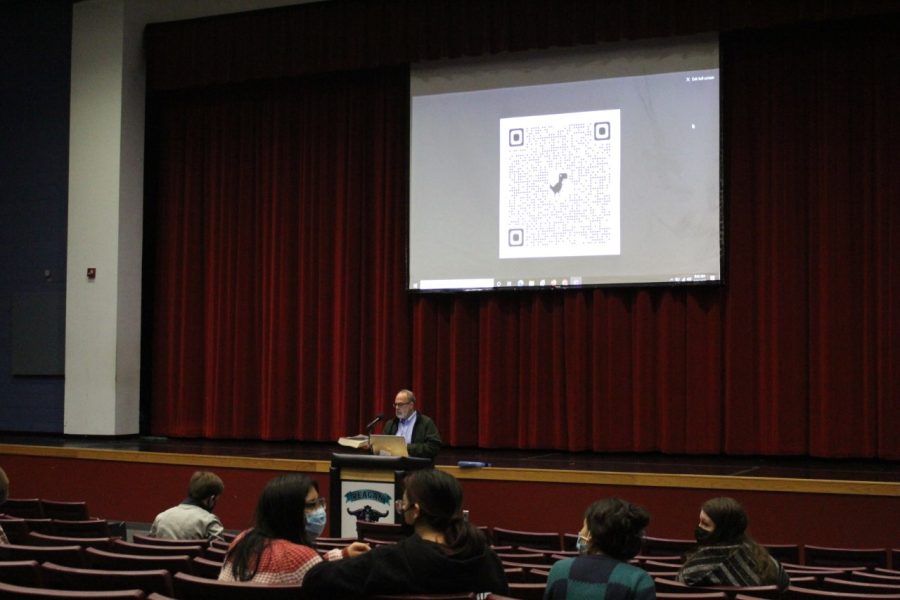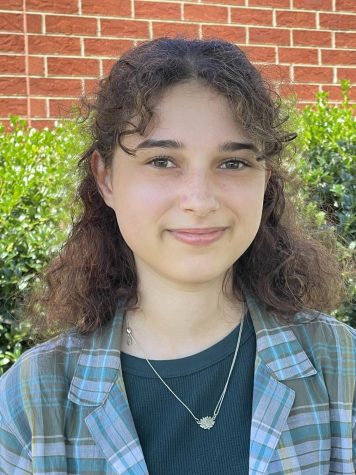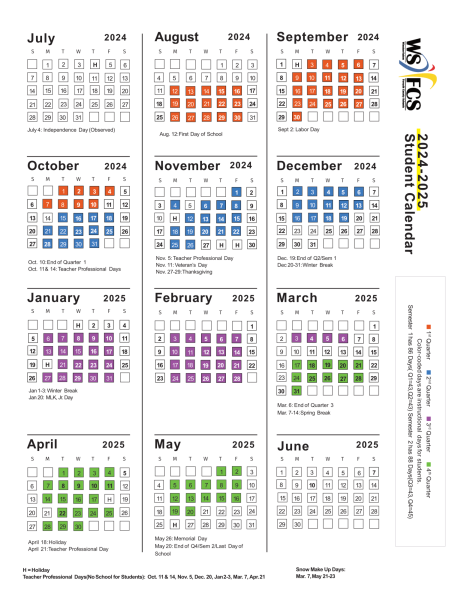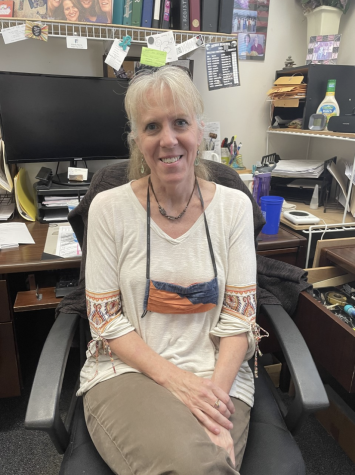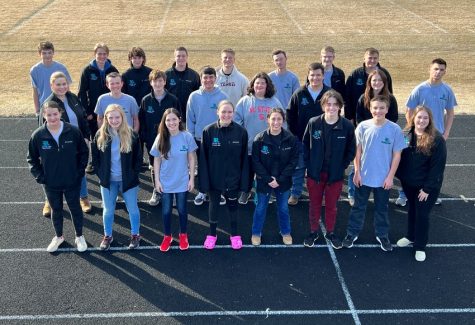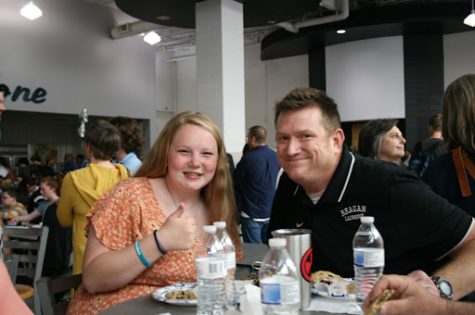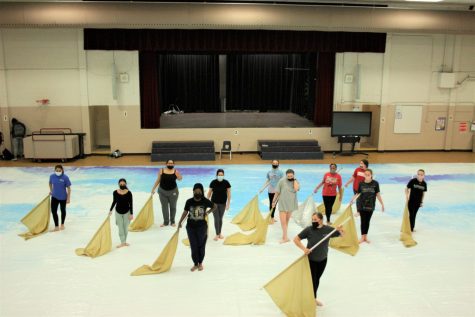A rundown on attending Reagan’s ACT prep
Image by Reilly Calvert
Students gather on Feb. 26 in the auditorium to learn ACT tips from a capED representative. Explanations for each question and section were explained thoroughly, displayed via projector for students to see.
February 17, 2022
Almost all Reagan juniors are bound to have heard about the ACT Bootcamp being provided by the school. The school has partnered with capED to provide two free, six-hour long prep sessions that would otherwise be worth $400, hopefully able to improve everyone’s final test score whenever they officially take the ACT.
Attending these courses has been highly encouraged, but what do they actually entail, and do they prove to be worth the hype?
The first prep session held was on Saturday, Feb. 12. Students were advised to bring their own pencils, calculators and something to write on, and were seated in the auditorium.
Each section of the ACT was broken down and practiced during the session by a capED representative. Students were given practice booklets filled with sample questions and passages, and these were probably one of the more helpful takeaways from the session.
Not every question was answered and reviewed, so the booklet still had plenty of pages to try independently outside of the time given. Answer keys in the back of the booklet allow for students to check their answers, and it even contains tables to help score their sections if completed.
“I’ll definitely be going to the second session to get some more practice in,” junior Rachael Bagg said. “I recommend it. Even if someone doesn’t find sitting in a lecture appealing, I’d still suggest going— the free ACT practice booklet is definitely worth it.”
Being stuck in the auditorium from 9 a.m. to 3 p.m. probably sounds terribly stifling. Fortunately, students were allowed to stand if sitting became uncomfortable, and every so often short breaks were given so attendees could actually get up and walk around.
Students who attended were also provided with lunch. The time was earlier than the normal school schedule, with students eating Papa John’s pizza at 11 a.m. in the cafeteria or outside in the courtyard.
“I thought it was a helpful program,” junior Paige LaDue said. “It was a bit long, but the breaks were helpful.”
It’s impossible to overlook the un-ideal long hours spent at school on a weekend. However, sacrificing this time might prove to be useful in the long run. Even if students took the pre-ACT and already have an idea of what the ACT is like, taking another look at the sections and reviewing their common formats provided a new, more critical understanding of the ACT arrangement.
The instructor provided his own advice and commentary based on his experience with previous standardized tests. Certain tips and predictions for the future ACT were given, such as the possible broad topics for reading and science passages, as well as tips for pacing oneself.
“I think the ACT prep was really beneficial,” junior Jacob Curd said. “It was helpful to learn tips and tricks to get our time down and to understand that it’s better to miss a question and move on than waste too much time on it.”
Additionally, if students had any concerns about certain questions they missed, the instructor was willing to go over them to quite an extent. Annotations and work were shown via a projector, giving students an idea as to how certain answers were deduced.
Going over parts of each section made it so students could assess their strengths and weaknesses on the topics within the test.
“I’d say it was really helpful in showing my strong points, like English, and my weaknesses, like math,” Bagg said.
Learning this gives students the opportunity to hone in on what needs work and really focus on rounding out their skills. They can put their practice booklets to use and work towards improvement.
“Overall, I’m really glad I went,” Curd said. “It helped me figure out my strengths and weaknesses and what I need to practice a little more before March 1.”

